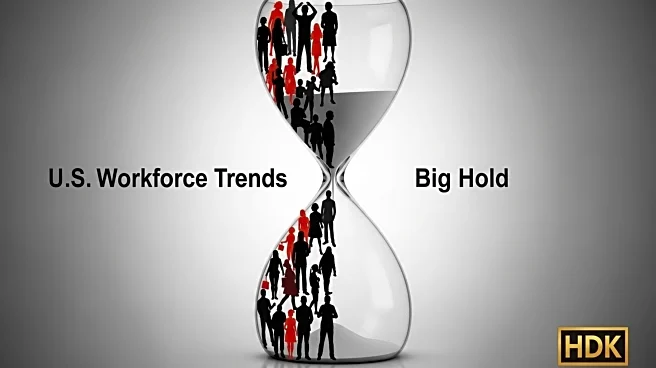What's Happening?
The U.S. labor market is experiencing a shift from the 'great migration' of remote work to a 'big hold,' where workers are choosing to stay in their current roles. A survey by Robert Half reveals that 73% of employees plan to remain in their positions through 2025, citing positive company culture, professional fulfillment, and compensation. However, concerns about the job market also play a role, as job openings have decreased significantly, and wage growth has slowed. Major companies like Microsoft and Amazon are mandating office returns, while AI and cost-cutting measures lead to layoffs, creating uncertainty for workers.
Why It's Important?
The shift in workforce dynamics has significant implications for U.S. businesses and the economy. As workers opt to stay put, companies may face challenges in attracting new talent and fostering innovation. The decline in job openings and wage growth reflects broader economic concerns, impacting consumer spending and economic stability. The trend also highlights the importance of company culture and employee satisfaction in retention strategies. Small businesses may benefit from the availability of talent, as they continue to hire and offer unique incentives to attract workers.
What's Next?
The labor market is likely to remain a focal point for policymakers and business leaders, with potential adjustments in employment strategies and economic policies. Companies may need to enhance their workplace environments and offer competitive benefits to retain employees. The role of AI and automation in the workforce will continue to evolve, prompting discussions on skills development and job security. Small businesses may capitalize on the shifting dynamics by leveraging tax benefits and workforce development programs to attract talent.
Beyond the Headlines
The changing workforce landscape also raises questions about the future of work and the balance between remote and in-office environments. The emphasis on company culture and employee well-being reflects broader societal shifts towards work-life balance and mental health. The impact of AI and automation on job security and skills development is a critical consideration for future workforce planning. The trend underscores the need for adaptive strategies that address both economic challenges and employee expectations.









